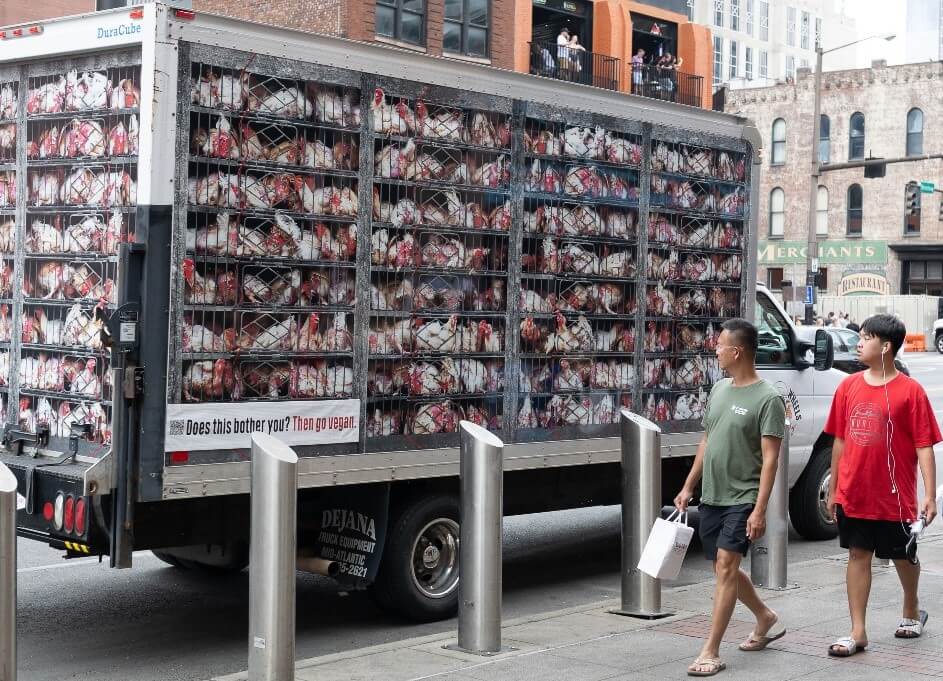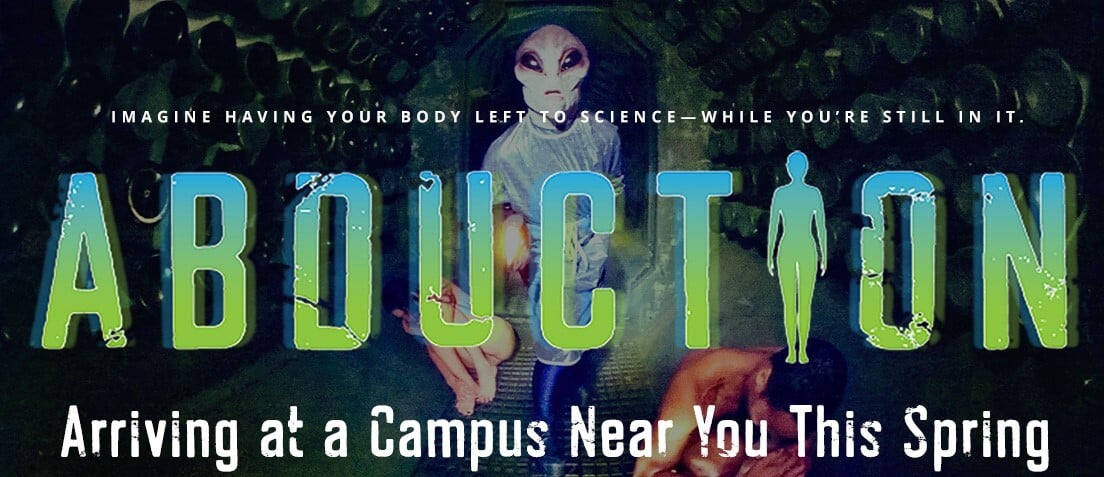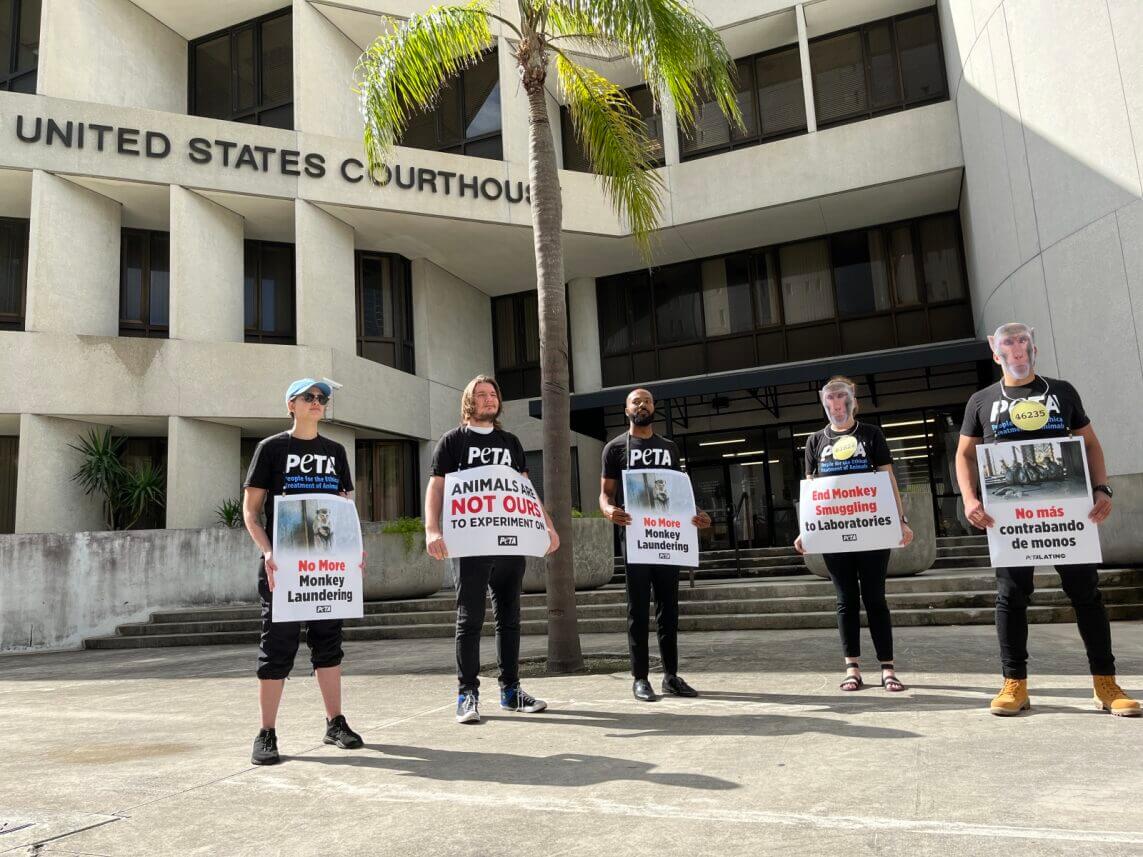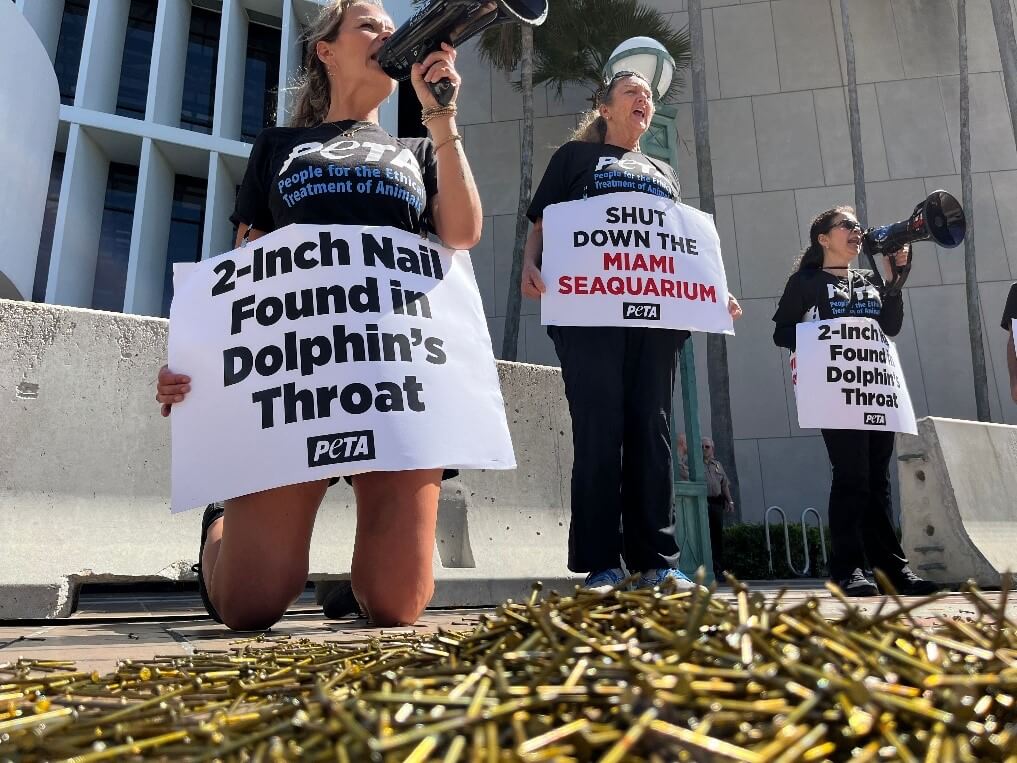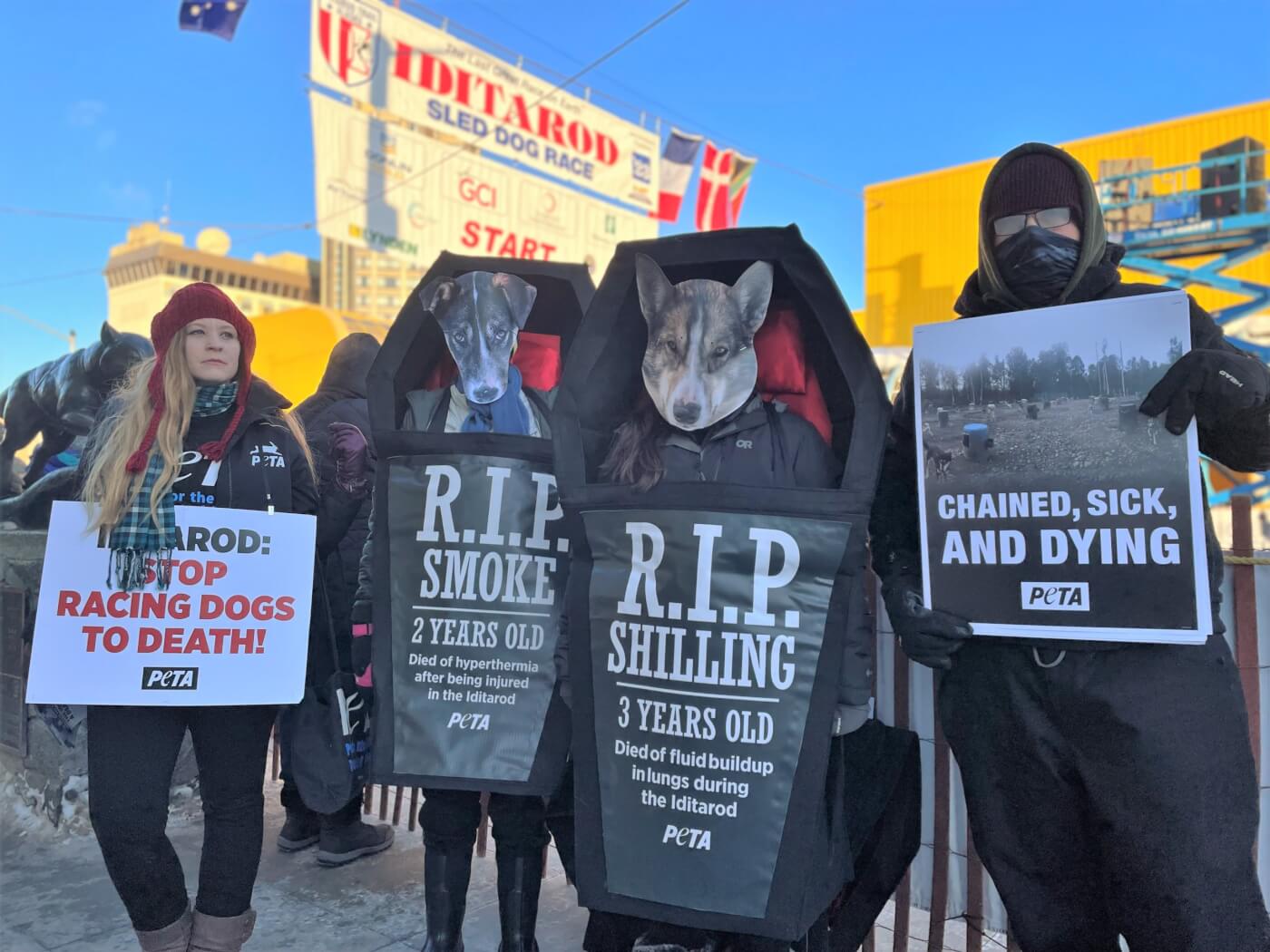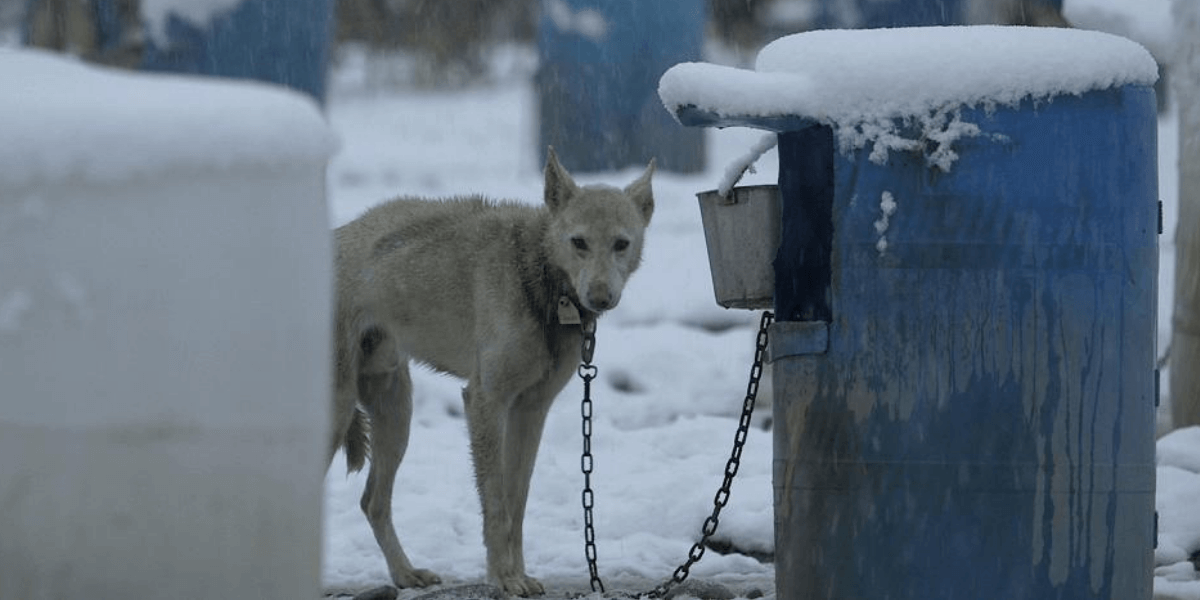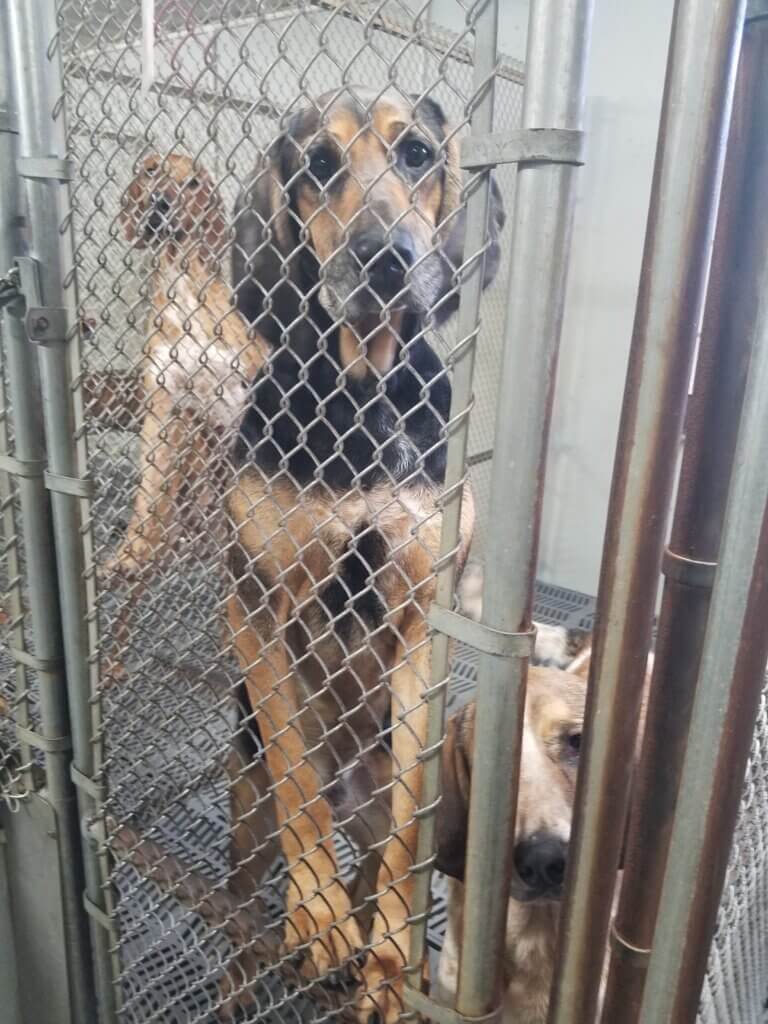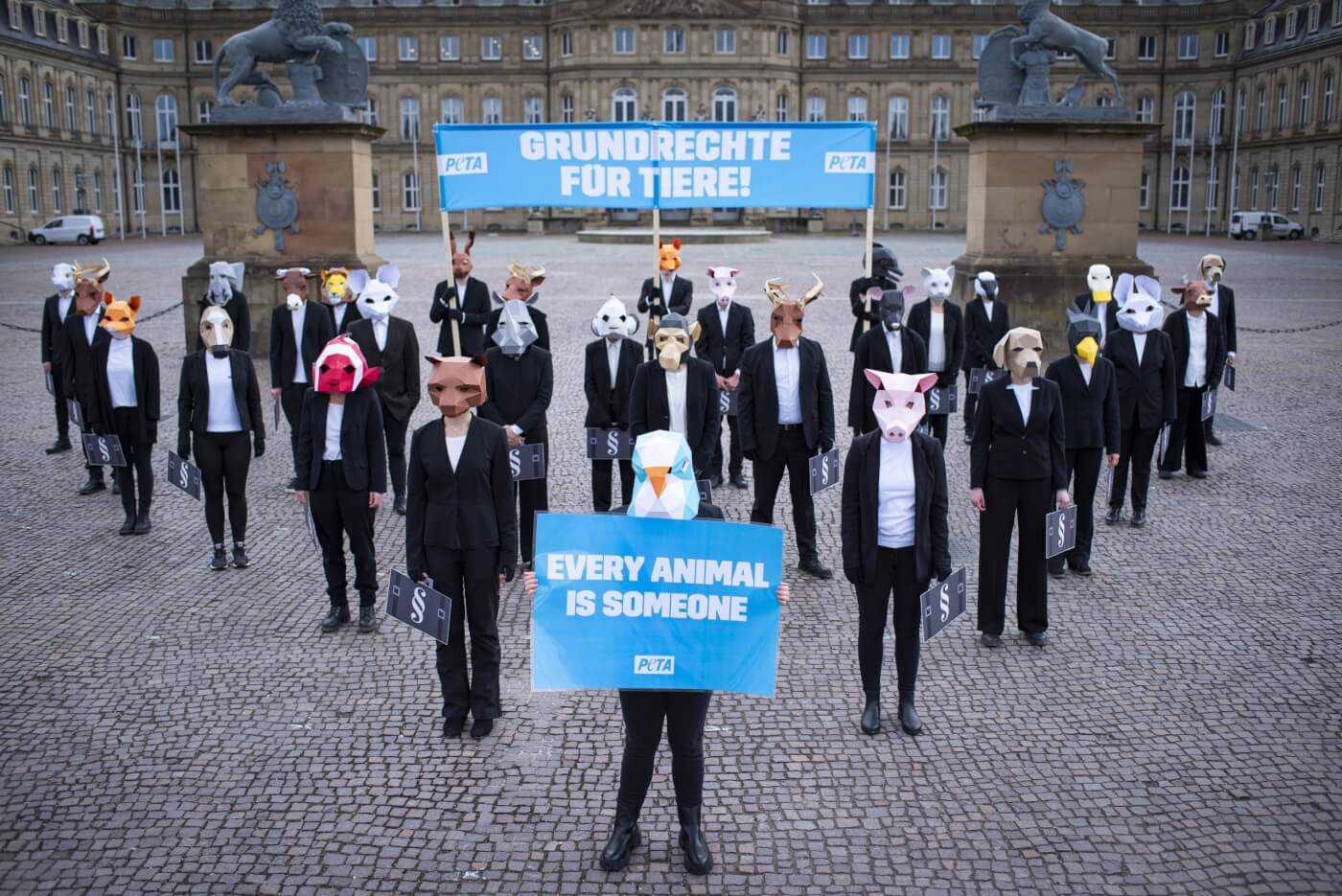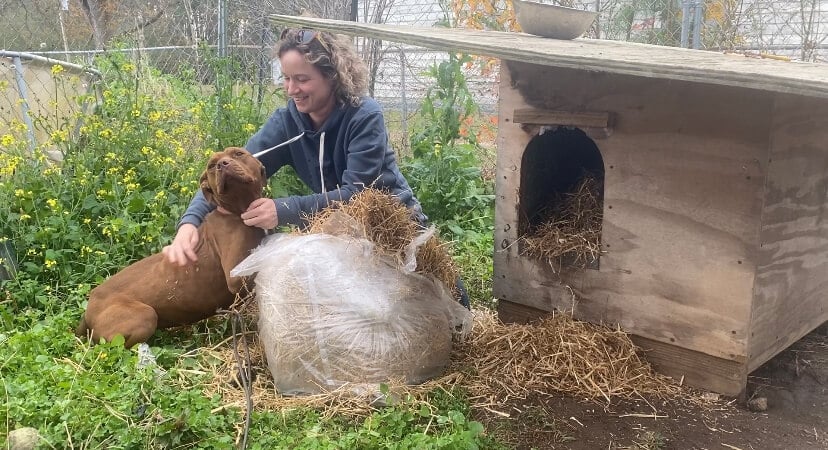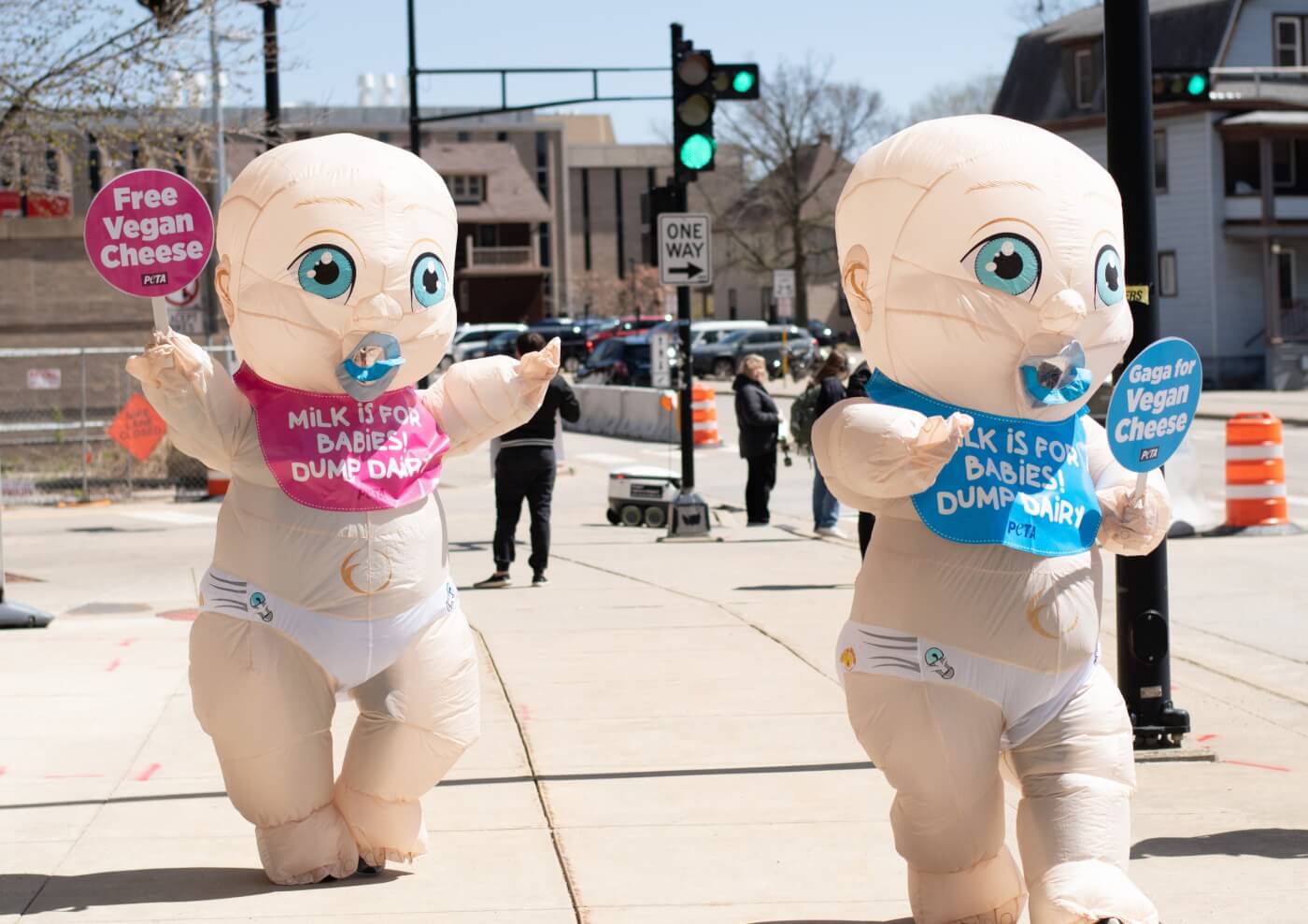Starting on Wednesday, PETA will bring its eye-opening exhibit “Without Consent,” which explores the troubled history of experiments on animals, to Kiener Plaza Park near Washington University in St. Louis (WashU), where animals have suffered acutely in painful, pointless tests. These animals include mice who were deliberately infected with sepsis, pigs who were killed after experimenters induced shock and drained about 40% of their blood, and mice who were prevented from sleeping for more than a few consecutive minutes.
When: Wednesday, March 6, 12 noon (Swaminathan’s presentation will take place at 12 noon. “Without Consent” will be open to the public from 12 noon to 4 p.m., March 6 to 10.)
Where: Kiener Plaza Park (near the Kiener Memorial Fountain and “The Olympic Runner” statue), 500 Chestnut St., St. Louis
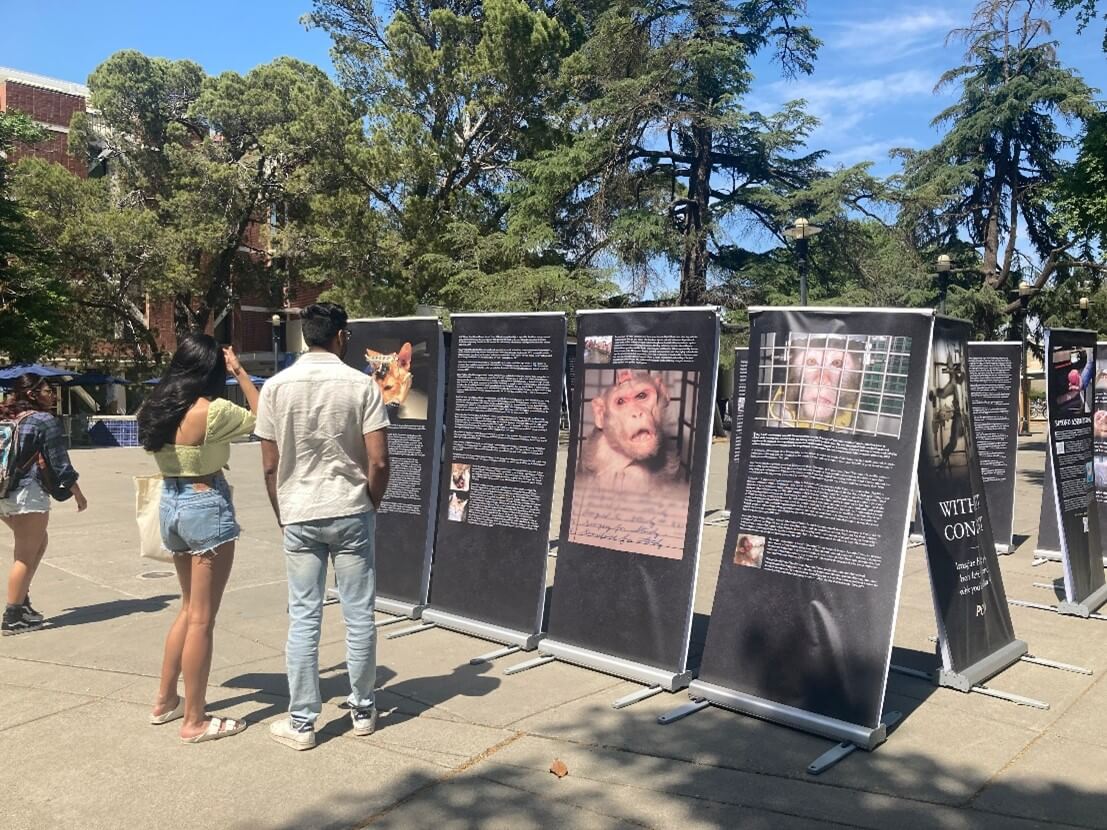
Visitors view PETA’s “Without Consent” exhibit. Credit: PETA
To mark the opening of the exhibit, PETA Science Policy Advisor Shriya Swaminathan—who holds a master’s degree in biology and biomedical sciences from Washington University School of Medicine—will hold a news conference open to students at the “Without Consent” exhibit, where she’ll share additional information about the exhibit and her work at PETA to move her alma mater and other universities in the U.S. away from archaic animal studies and toward superior, human-relevant research methods, such as human-based 3-D tissue and organoid models.
Modeled after the Vietnam Veterans Memorial, “Without Consent,” which is on the final run of its tour, will be on display locally for five days. It features 28 panels with descriptions and photographs of nearly 200 animal experiments conducted at U.S. institutions from the 1920s through the present. Watch the trailer here. An interactive virtual exhibit is also available here.
“‘Without Consent’ tells the true stories of animals harmed and killed in experiments that they did not and could not consent to,” says PETA Vice President Shalin Gala, another WashU alum. “PETA is calling on WashU and all other institutions to embrace modern, animal-free research, because having the power to exploit other species does not give us the right to do so.”
Following an intensive PETA campaign, WashU stopped using cats in infant intubation training courses at its medical school, where students rammed hard plastic tubes down cats’ windpipes as many as 15 times in a row in a procedure that can cause swelling, bleeding, collapsed lungs, and death. But many other equally cruel and scientifically dubious experiments continue in the school’s laboratories.
“Without Consent” also points out that vulnerable humans—including orphans in tuberculosis and psychological experiments, immigrant women in gynecological surgeries, soldiers in LSD and poison gas tests, and impoverished Black men in syphilis experiments—were exploited in experiments. Just as society now understands that these experiments were wrong, “Without Consent” shows that we need to let a similar moral awakening guide our conduct today by extending consideration to the 110 million animals killed every year in U.S. laboratories. These animals are individuals who feel pain and fear, yet they’re robbed of their babies, force-fed chemicals, and sickened with diseases, among other atrocities.
Following its debut in 2021, “Without Consent” has traveled to 29 cities and has shared information about the horrors of experimentation with nearly 15,000 visitors. As neuroscientist and Jeopardy! host Mayim Bialik describes it, “‘Without Consent,’ PETA’s new traveling exhibit, is a must-see. … Check it out in a city near you and do your part to help create a better future for all!”
After viewing “Without Consent,” more than 2,500 visitors have been moved to contact their legislators, urging them to oppose animal testing and endorse the Research Modernization Deal, which offers a strategy for replacing scientifically useless tests on animals with effective human-relevant research methods.
PETA—whose motto reads, in part, that “animals are not ours to experiment on”—points out that Every Animal Is Someone and offers free Empathy Kits for people who need a lesson in kindness. For more information, please visit PETA.org or follow the group on X, Facebook, or Instagram.
The post Invasive, Deadly Tests at WashU Prompt PETA Exhibit on Dark History of Animal Experiments appeared first on PETA.
This post was originally published on Animal Rights and Campaign News | PETA.
